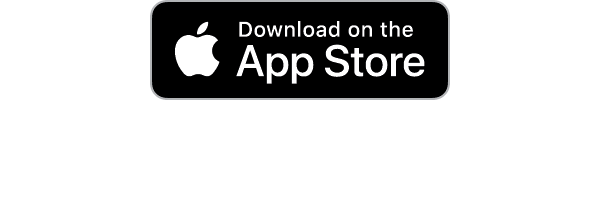Around 83% of Valentine's Day-themed spam emails received between January 22 and February 8 were scams according to Security Boulevard. To reduce your risk of encountering messages like these, it's imperative to keep your inbox clean.
A cluttered inbox can also feel overwhelming and hinder productivity. By learning effective email management techniques, you can regain control and reduce stress. Below, we'll explore how to clean out email inboxes to take your productivity to the next level.
Streamlining Email Organization
Email cleanup can transform how you manage your day. Start by reviewing your current folders and identifying unnecessary ones. Assign categories to emails to make retrieval easier in the future.
Focus on simplifying rather than overcomplicating the structure of your folders. Knowing how to organize email inbox messages contributes significantly to overall email productivity.
Managing Email Folders Effectively
Folders should be created based on your specific needs, such as:
- Work
- Personal
- Project-based emails
Avoid creating too many subfolders, which can become overwhelming. Review folder contents regularly and delete outdated or irrelevant emails.
A simple approach often makes it easier to find what you need quickly. Email management is much easier when your folders serve a clear purpose.
Setting up Email Filters
Filters can automatically sort incoming messages, saving you time and effort. Most email platforms allow you to set rules for:
- Sender names
- Keywords
- Attachments
Once filters are in place, monitor their effectiveness and adjust as necessary. Automated sorting, one of the most useful forms of business automation, can also reduce the stress of facing an overloaded inbox. With filters, managing a busy email account becomes far more efficient.
Decluttering Unread Messages
Unread messages often pile up, creating unnecessary clutter. Start by searching for unread emails older than a specific date and decide whether to keep or delete them.
Messages that remain unread for extended periods are often less important than they seem. Regularly cleaning up unread messages is key to maintaining an organized email inbox. Taking action on unread emails can significantly reduce stress.
Archiving Old Emails
Archiving is a great way to retain important information without keeping it in your main inbox. Move emails to an archive folder once they are no longer needed for immediate reference. Use your email platform's search feature to find archived messages quickly when needed.
Archiving helps maintain a clean inbox without sacrificing access to valuable information. It's an essential step in long-term email organization.
Identifying Spam and Junk Mail
Spam and junk emails can clutter your inbox and make finding important messages more difficult. Train your email's spam filter by marking unwanted emails appropriately.
Review your spam folder occasionally to ensure legitimate emails aren't mistakenly flagged. Removing spam promptly improves both security and email productivity, and identifying patterns in spam can also help you avoid future clutter.
Unsubscribing From Newsletters
Newsletters often contribute to inbox overload, even if they once seemed useful. Take a few minutes to unsubscribe from emails that no longer serve a purpose.
Many platforms provide simple one-click unsubscribe options at the bottom of messages. Reducing newsletter clutter makes it easier to focus on essential emails. A streamlined inbox improves overall productivity substantially.
Using Search Tools in Your Inbox
Email search tools can save you time when looking for specific messages or attachments. Learn advanced search functions like filtering by:
- Date
- Sender
- Subject line
Familiarity with these tools ensures you don't waste time scrolling endlessly through emails. Search features are especially helpful for those managing multiple projects or clients. Embracing email technology simplifies daily communication tasks.
Creating an Email Prioritization System
Prioritization helps you address critical messages first without neglecting others. Flag emails that require immediate attention or set reminders for follow-ups. Responding to high-priority emails promptly builds better communication habits.
Lower-priority messages can be grouped for bulk review at a convenient time. With a prioritization system, email management and clearing your inbox becomes far easier.
Deleting Duplicate Emails
Duplicate emails often clutter inboxes without adding value. Use email cleaning tools to identify and delete unnecessary duplicates.
Reducing duplicates not only frees up storage space but also makes navigation easier. Review sent items and drafts for repetitive messages that can be consolidated. Simplifying your inbox creates a more streamlined workflow.
Scheduling Time for Email Management
Set aside specific times during the day to handle emails rather than checking constantly. Dedicated email time prevents it from interfering with other important tasks.
During this period, focus solely on clearing new messages and organizing old ones. Consistency in this habit reduces the chance of missing important communication. Scheduling ensures a balance between email and other responsibilities.
Integrating Productivity Apps with Email
Many productivity apps, such as task managers, integrate seamlessly with email platforms. These tools allow you to turn emails into actionable tasks with just a few clicks.
Apps that sync with calendars can also help in managing follow-ups and deadlines. Integration reduces the need to switch between platforms, saving valuable time.
Utilizing Keyboard Shortcuts
Keyboard shortcuts can speed up email tasks like:
- Deleting
- Archiving
- Replying
Familiarize yourself with shortcuts available on your email platform and practice using them regularly. Efficiency improves when repetitive tasks are completed in seconds rather than minutes. Learning even a few shortcuts can have a noticeable impact on productivity. Small adjustments like this make a big difference over time.
Establishing Email Etiquette Rules
Clear and concise communication helps emails get noticed and addressed promptly. Avoid vague subject lines or overly long messages, which can cause confusion. Professional email etiquette also includes timely responses and polite language.
Setting internal rules for email etiquette can improve team communication. Better practices reduce unnecessary back-and-forth exchanges.
Automating Routine Email Responses
Templates and auto-replies save time when dealing with frequent inquiries or common questions. Most email platforms offer customizable automation options for routine responses. Use this feature for:
- Out-of-office messages
- Appointment confirmations
- Standard inquiries
Automation reduces repetitive typing and frees up time for more complex tasks.
Common Mistakes to Avoid
Mistakes in email management can lead to unnecessary stress and wasted time. Ignoring best practices often results in an inbox that's difficult to navigate. Below are some of the most important to keep in mind.
Failing to Set Clear Email Goals
Without clear goals for managing your emails, it's easy to lose track of priorities. Emails that sit unread or unorganized often reflect a lack of purpose in how communication is handled. Defining goals, like responding within a set timeframe or categorizing messages, creates structure.
A lack of strategy can lead to missed deadlines or overlooked opportunities. Taking time to align email habits with your overall objectives prevents chaos.
Overcomplicating Email Responses
Crafting overly detailed or lengthy responses can confuse the recipient and delay communication. Keeping replies concise and clear avoids misinterpretation and saves time for both parties.
Adding unnecessary details often leads to more back-and-forth emails for clarification. Prioritize clarity over perfection to keep communication flowing smoothly.
Not Tracking Important Conversations
Key email threads can get buried if you don't actively track them. Without follow-ups or reminders, important opportunities may slip through the cracks.
Using tools like flags or follow-up reminders ensures critical conversations stay on your radar. Letting essential emails get lost amid less relevant ones creates unnecessary stress. Proactively managing important threads helps maintain professional and personal commitments.
Skipping Updates to Email Security Settings
Email accounts are vulnerable if security settings are outdated or poorly configured. Neglecting password updates or two-factor authentication increases the risk of breaches.
Regularly reviewing security measures keeps sensitive information safe from hackers. Even a single data breach can cost your company millions. A failure to adapt to new security threats could jeopardize your entire email system.
Delaying Inbox Cleanup for Too Long
Procrastinating on inbox maintenance only makes the task more daunting. A backlog of emails takes longer to organize and creates unnecessary stress.
Tackling small amounts of inbox clutter regularly is much easier than handling everything at once. Delays in addressing cluttered inboxes can lead to missed opportunities or forgotten tasks.
Overusing Email for Quick Questions
Relying on emails for questions that could be answered more efficiently in person or via messaging apps slows down communication. Email chains often result from back-and-forth exchanges that could have been resolved in minutes through direct conversation. Knowing when to use email versus alternative communication tools improves overall efficiency, and long email threads can frustrate recipients and delay resolutions.
Ignoring Mobile Email Management Options
Many people overlook the convenience of managing emails through mobile devices. Apps designed for mobile email management offer features like quick sorting or archiving on the go.
Failing to utilize these tools leaves your inbox cluttered until you're back at a computer. Mobile management options help you stay productive during travel or downtime.
Don't Overlook How to Clean Out Email
Mastering email management is about creating systems that simplify and streamline your workflow. The info in our guide will help ensure you understand how to clean out email effectively and take your productivity to the next level.
Mailstrom empowers users to declutter their inboxes swiftly, enabling the deletion of thousands of emails with just a few clicks. Our intuitive interface and powerful features streamline email management, enhancing productivity and reducing digital clutter. You can get in touch with us today to learn more about how we can help.



